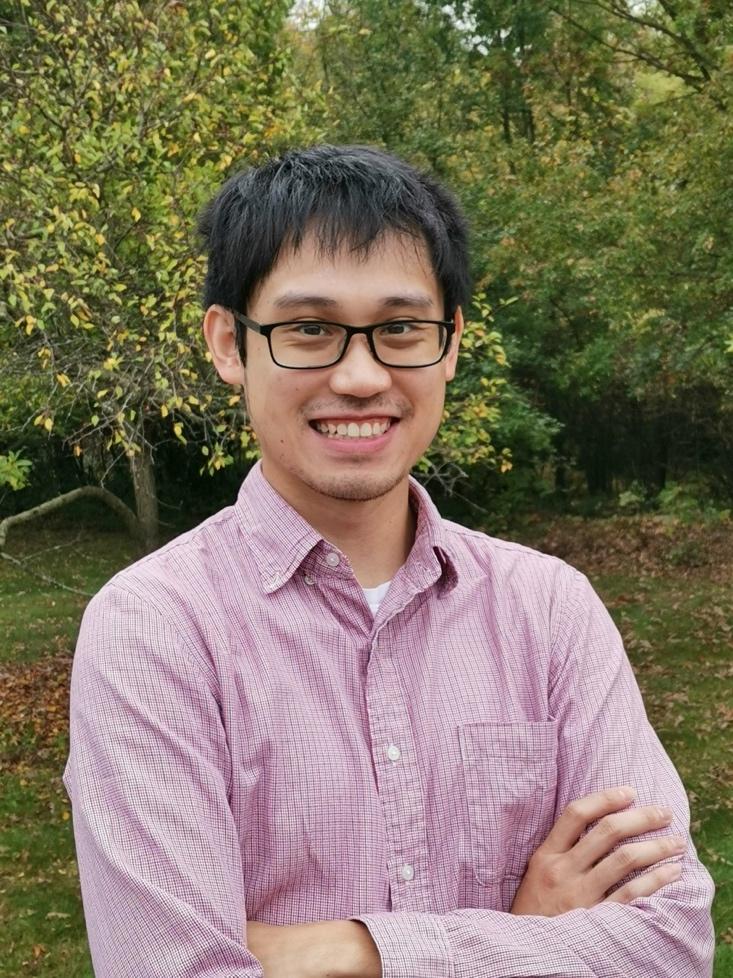About
DR. TOMMY VO
EDUCATION AND RESEARCH
 Dr. Tommy Vo is an Assistant Professor in the Department of Biochemistry and Molecular
Biology (BMB) and is affiliated with the MSU College of Human Medicine (CHM). He did
his undergraduate studies at SUNY Binghamton University. As an undergraduate, he explored
research opportunities there and at CUNY City College in diverse areas ranging from
cell signaling in Drosophila to the evolution of human behaviors. It was his early research mentors who helped
guide him and ignite a youthful passion for scientific research. In 2016, he earned
his Ph.D. in Molecular Biology from Cornell University where he worked on understanding
how physical interaction networks (in yeast, human, and rice), that link thousands
of different protein molecules together, enable many molecular processes such as proper
gene regulation. To go from a systems-level to a smaller genic-level understanding
of gene regulatory processes, he did postdoctoral work at the National Cancer Institute
to study how RNA-binding proteins repress gene expression by coupling heterochromatin
assembly and RNA degradation. During much of this time, he was supported by the NIGMS
Postdoctoral Research Associate Training (PRAT) fellowship. Now leading an independent
lab, he seeks to continue uncovering new fundamental principles underlying eukaryotic
gene regulation.
Dr. Tommy Vo is an Assistant Professor in the Department of Biochemistry and Molecular
Biology (BMB) and is affiliated with the MSU College of Human Medicine (CHM). He did
his undergraduate studies at SUNY Binghamton University. As an undergraduate, he explored
research opportunities there and at CUNY City College in diverse areas ranging from
cell signaling in Drosophila to the evolution of human behaviors. It was his early research mentors who helped
guide him and ignite a youthful passion for scientific research. In 2016, he earned
his Ph.D. in Molecular Biology from Cornell University where he worked on understanding
how physical interaction networks (in yeast, human, and rice), that link thousands
of different protein molecules together, enable many molecular processes such as proper
gene regulation. To go from a systems-level to a smaller genic-level understanding
of gene regulatory processes, he did postdoctoral work at the National Cancer Institute
to study how RNA-binding proteins repress gene expression by coupling heterochromatin
assembly and RNA degradation. During much of this time, he was supported by the NIGMS
Postdoctoral Research Associate Training (PRAT) fellowship. Now leading an independent
lab, he seeks to continue uncovering new fundamental principles underlying eukaryotic
gene regulation.
MENTORSHIP AND TRAINING PHILOSOPHY
Proper mentorship of students/trainees is a high priority for Dr. Vo. He credits many of his own mentors for helping him achieve his own professional successes. He welcomes those who have a genuine interest in the lab’s research topics and who want to further develop as professional scientists. Prior research experience is always a plus. However, Dr. Vo places exceedingly more value on personal drive for learning and self-improvements. As a principle investigator, he hopes to equip all mentees with the appropriate scientific and professional skills necessary to succeed in science (for within and beyond the lab).